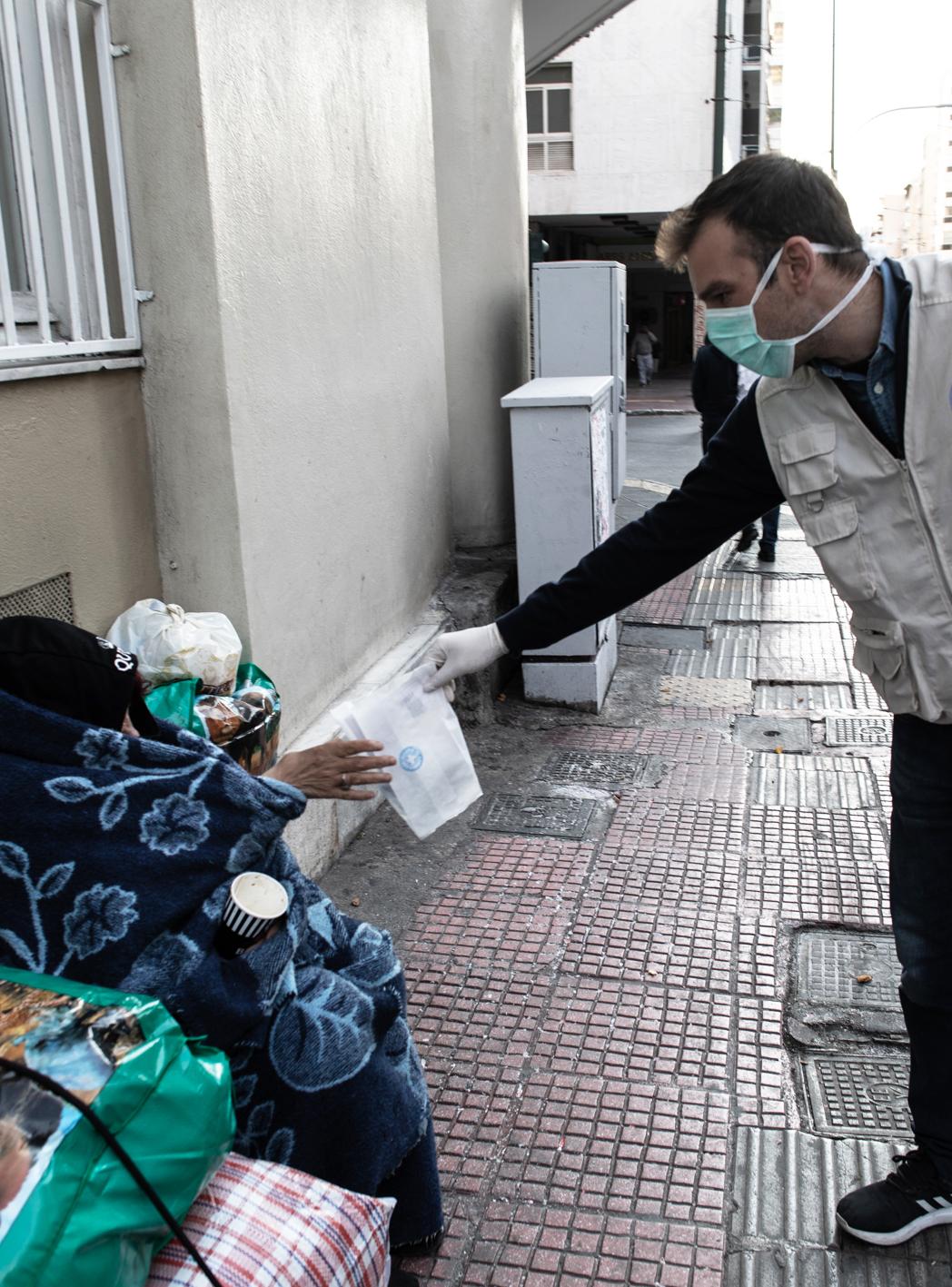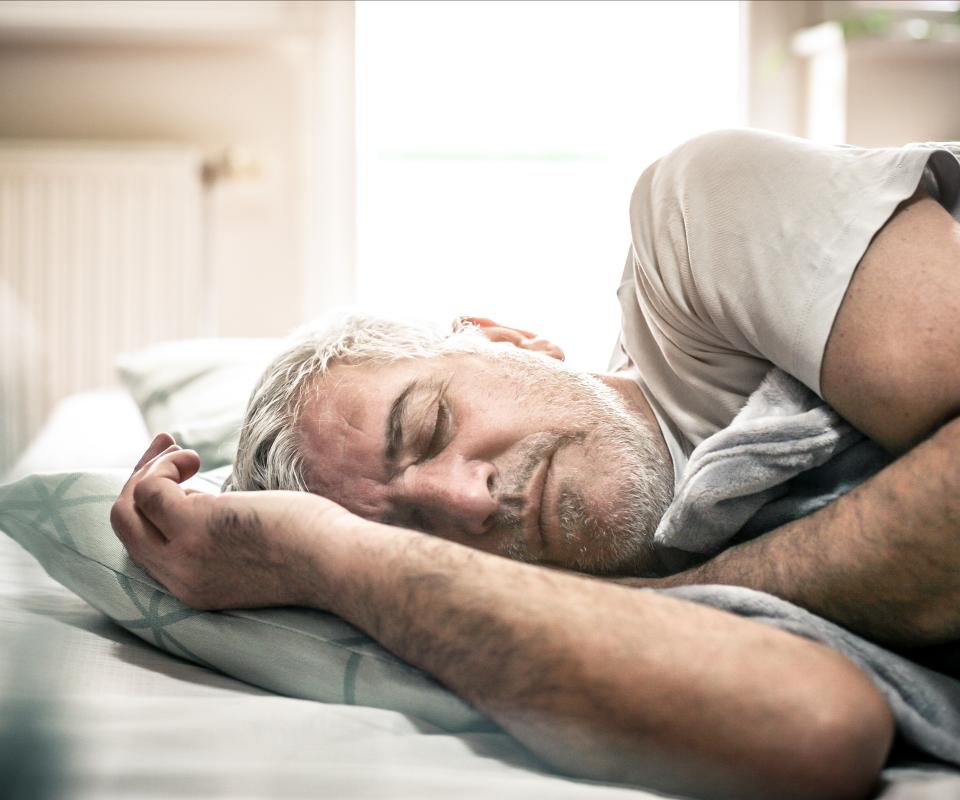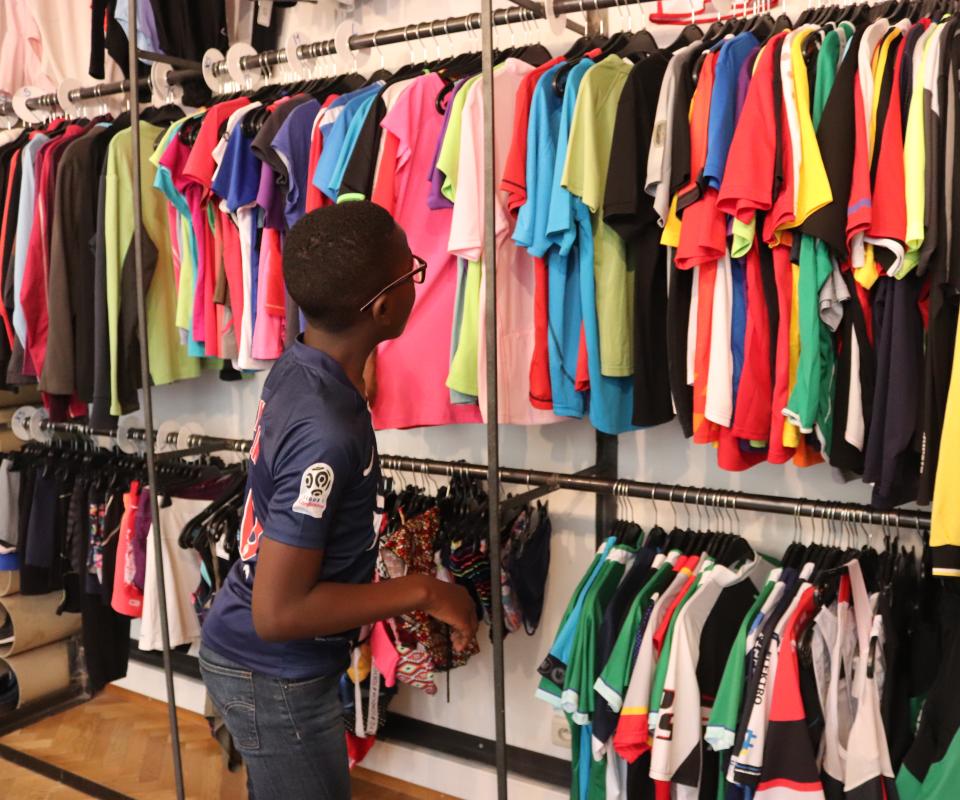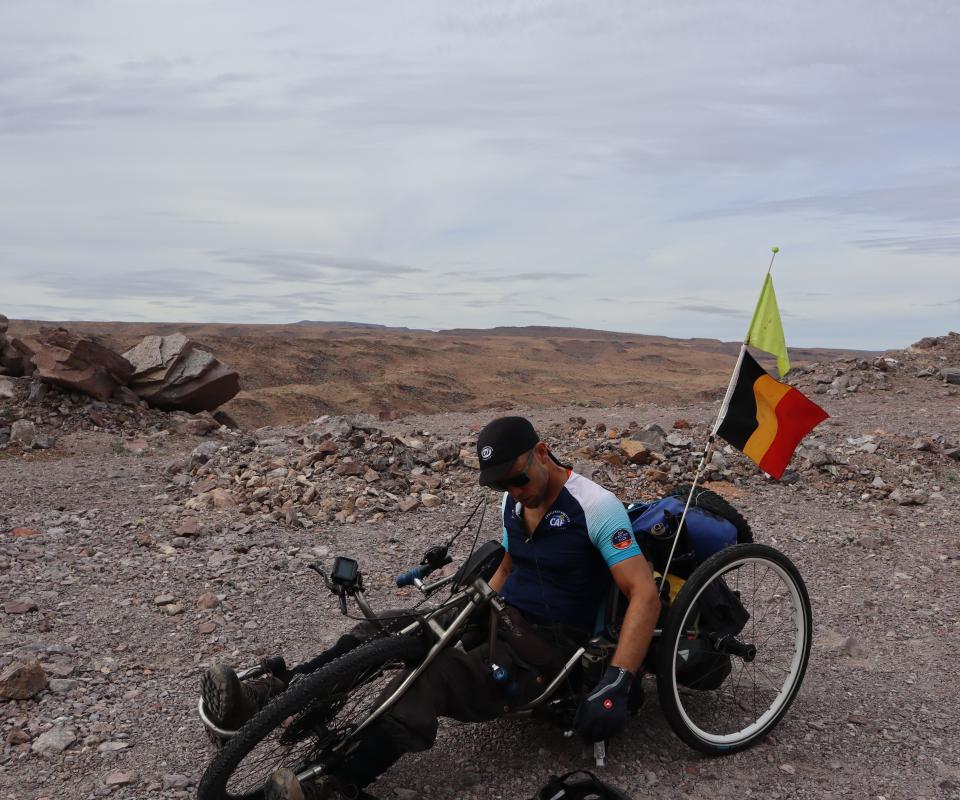
EPIM Covid response initiative: solidarity with the most vulnerable people seeking refuge in Greece
In the refugee camps of Greece, the coronavirus crisis is hitting an already vulnerable population hard. Emergency funding from the European Programme for Integration and Migration (EPIM), of which the King Baudouin Foundation is a founding member, is supporting the work of eight NGOs on the islands.
In Greece’s overcrowded refugee camps, Covid-19 is a crisis on top of a crisis on top of a crisis. Following the country’s financial collapse and its subsequent struggle to deal with the huge numbers of vulnerable people seeking refuge on its shores, today’s public health disaster presents tremendous challenges medically, politically and socially.
More than 40,000 people are currently detained on the Greek islands, explains Elli Xenou of the NGO Doctors of the World in Greece, with camps full beyond breaking point. The Moria reception and identification centre (RIC) in Lesvos houses 19,000 people today, despite its capacity being less than 4,000. Vathy RIC in Samos, able to host fewer than 1,000 people, now houses more than 6,000.
‘Access to necessary services was already compromised,’ Xenou says. ‘Living conditions were already poor. Addressing an outbreak in such overwhelming conditions is obviously becoming a more difficult task that includes extra risks.’ For those working on the frontline, ensuring adequate protection, medical supplies, support services and distance management in these circumstances is almost impossible.
Doctors of the World is one of the NGOs supported by EPIM, the European Programme for Integration and Migration, of which the King Baudouin Foundation is a founding member. In light of the ongoing coronavirus crisis, EPIM has allocated €150,000 in emergency funding to eight Greek organisations providing medical, legal, sanitary and social care to children and adults living in incredibly precarious situations.
‘We are pretty worried’
As Covid-19 wreaks havoc around the world, health and welfare systems are struggling to cope. The most vulnerable populations – Roma, prisoners, homeless people, drug users, refugees and migrants - are the most exposed to this latest disaster.
While official guidelines require refugees at the government-run Moria RIC to remain at the camp, for example, the lack of clean water, medical and psychological support, combined with poor conditions due to the overuse of toilets and showers, make it practically impossible to comply with anti-virus security measures. At the same time, all asylum-seekers arriving on Lesvos are quarantined in locations such as beaches and abandoned buildings with limited to medical care or basic support.
Exacerbating the situation, alongside the coronavirus outbreak Greece has seen a rise in xenophobic and anti-migrant sentiment. Fires have broken out in three RICs and other NGO premises have been burned down, while NGO workers have been attacked and there has been frequent harassment of refugees themselves.
‘Despite the widespread perception that there is a link between mobile populations and the introduction or spread of communicable diseases, there is no systematic correlation between the two,’ Xenou says. ‘What has been proven, however, is that communicable diseases have a primary link to poverty, poor living conditions and exclusion from essential goods and services.
EPIM’s intervention will help Doctors of the World distribute hygiene kits and sanitary material, scale up their provision of medical assistance and provide protection measures for field staff.
A tougher background
The independent Pikpa Camp on Lesvos, run by the NGO Lesvos Solidarity, reports similar challenges. It has created isolation shelters in the event that any of its 85 residents – many of them children or with disabilities – become infected. Lesvos Solidarity is also reporting attacks and threats against its volunteers and Pikpa residents. The emergency funding from EPIM will allow it to hire a nurse, decontaminate the camp and provide extra sanitary facilities.
Athens-based civil society organisation Human Rights 360, meanwhile, promotes and campaigns for access to rights and justice as a way to achieve social cohesion. It is currently providing legal assistance to 40 unaccompanied migrant children and 20 vulnerable adults, and will use the extra funding it has received from EPIM to take their asylum claims to the Greek courts and possibly the European Court of Human Rights. Adding an extra social worker will double the number of people they can support.
‘This month we have very little flow from the land but also the sea borders,’ a spokesperson said. ‘We suspect that when things calm down in May – the Greek asylum service is closed until 15 May due to Covid-19 – there will be a great increase in new cases and flows in a tougher legislative and political background. Without the lawyer who arranges and presses for the case file, the children cannot be moved out of the detention centre to a shelter or to their families in Europe.’
"Living conditions were already poor in Greece’s refugee camps. Addressing an outbreak in such overwhelming conditions is a difficult task that includes extra risks."
The emergency funds provided by EPIM also enable fellow NGOs METAdrasi, Greek Council for Refugees, Greek Forum of Refugees, Starfish Foundation and AITIMA to continue and expand their work.
About EPIM
The mission of the European Programme for Integration and Migration (EPIM) is to strengthen civil society’s role in advocating for constructive approaches to migration in Europe. The King Baudouin Foundation is a founding member of EPIM, which is driven by 13 partner foundations and 11 associated foundations.
Other stories
Inspiring engagement!

Soft sound improves sleep quality in dementia
"On the one hand, poor sleep leads to additional problems for patients, which also affects their caregivers, often resulting in institutionalisation. On the other hand, we wonder whether poor-quality deep sleep could worsen the disease or perhaps even contribute to its development."

Sportswitch: THE recycling center for sports clothing
Inclusive transition
“We want to raise awareness about the sustainability of sports clothing.”

“Alaska - Mexico by handcycle? Michiel did it!”
"I did it, of course, for myself, because I want to keep traveling. But I also want to inspire other people with disabilities. Your world doesn’t have to become small after an accident."